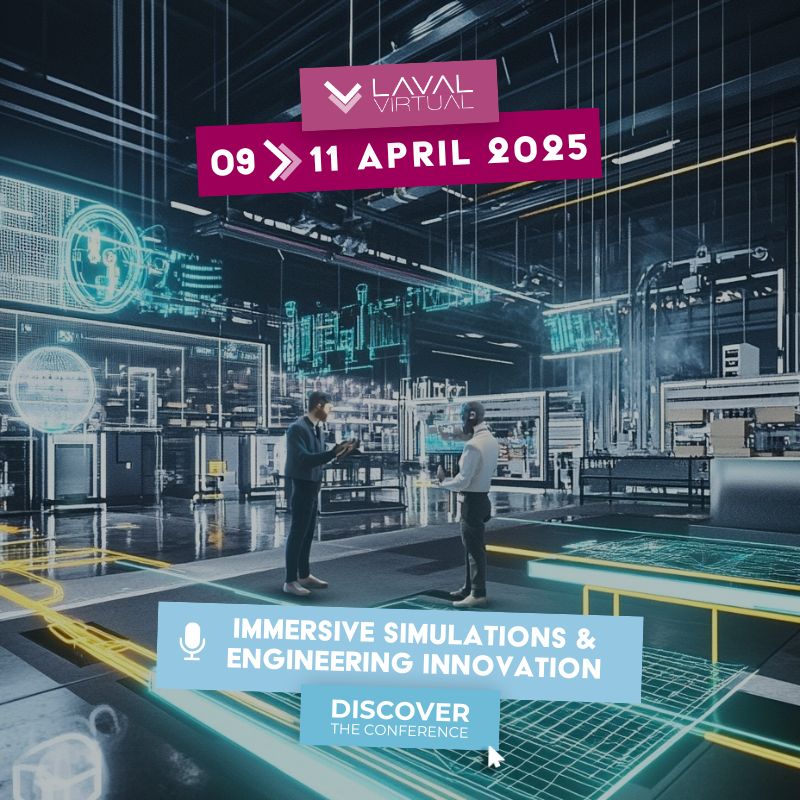
ESI Group is exhibiting at Laval Virtual on April 12-14, 2023.
Crédits photos : ESI Group
ESI Group is an Industry 4.0 company that supports industry players in their digital transition. ESI Group is a pioneer in the virtual approach to solving complex problems with simulations. ESI Group intends to revolutionize decision making in industry through virtual prototyping. ESI Group is exhibiting at Laval Virtual from April 12-14, 2023 at booth B11. Interview with David Rauline, Technical Manager.
Can you introduce your company?
Founded in 1973, ESI Group envisions a world where industry achieves breakthrough results while addressing critical issues such as environmental impact, consumer and operator safety and comfort, and sustainable business models.
ESI provides reliable, customized solutions based on predictive physics modeling and virtual prototyping expertise that enable industries to make better decisions at a more manageable scale.
ESI Group is active in the automotive and ground transportation, aerospace, defense and marine, energy, and heavy industry sectors, and has a presence in more than 20 countries. The company employs approximately 1,000 people worldwide and has sales of €130 million in 2022.
What will you exhibit at Laval Virtual 2023?
ESI will present a new way to experience human-centered process validations in a fully collaborative and co-located virtual environment. Our customers can run complex scenarios with maximum comfort for your participants via wireless headsets (including pass-through technology) in a dedicated workspace. They can also easily engage your teams in advanced simulation and make critical decisions earlier and with the highest level of confidence.
Laval Virtual is celebrating its 25th edition this year. Do you have any memories to share since the first edition in 1999?
Aside from my first time, the most memorable edition was 2016 and the real explosion of “low-cost” headsets (VIVE and Oculus first) and the exponential multiplication of use cases. Being able to work on such complex scenarios, so simply, with this level of immersion was a shock and a realization of the impact of these tools. There was a magical quality to witnessing the reactions of joy and disbelief of both the “newcomers” and the “rearguard”.
The world of immersive tech was shaken up by the rise of the Metaverse and virtual worlds. What is your opinion on these?
The potential is absolutely there for the industry. The advantages of a “perfect” digital twin, both geometrically and physically, are undeniable. If we take the challenges of the energy transition that we are currently experiencing, and the changes in transport modes, for example, any decision taken during the “digital” phase of development is time saved and less risk. Where metavers can have a major impact, which we have been experimenting with with Volvo Truck for nearly three years, is in the sharing and involvement of all the players.
Giving access to these persistent, physically realistic digital twins in the simplest possible way (transparent UX, no need for training on the tool itself, project logic, etc.) to all those involved can save precious time in development cycles that are increasingly short and constrained in terms of quality, security and savings in materials and resources.
How do you see the VR world in 10 years?
Virtual reality is a way to consume and experience information. It is clear that we will look at this technology the same way we look at our digital tools today. Depending on my need, I don’t ask myself what is the most relevant to “consume” digital content. Depending on the content and my environment, I choose to go to: my phone, my tablet or my computer. I will be able to experience a digital “continuity” with a different experience on all the media. Besides, this ecosystem is useful for my professional and personal life (finally Netflix, Excel, same fight). Of course, immersive technologies should follow this logic. I expect the technology to be erased in favor of usage.


